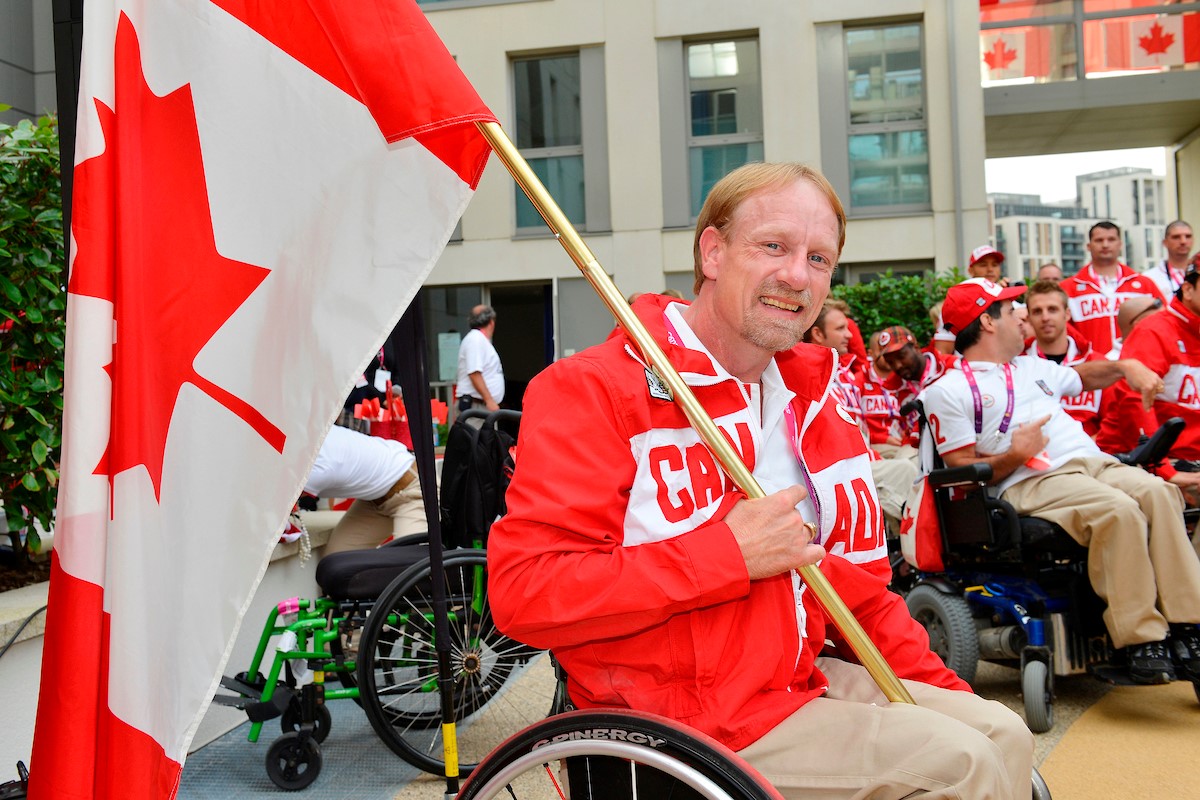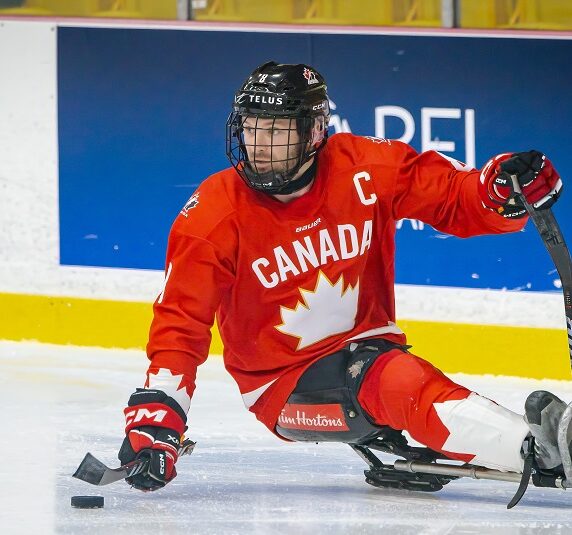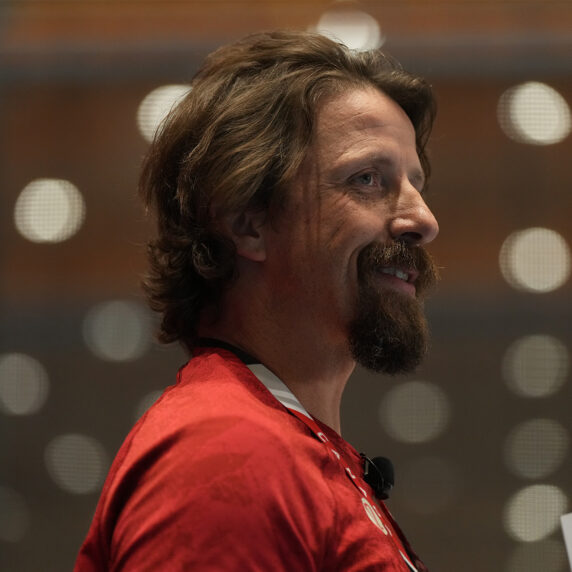From bomb shelters to the Paralympic Games: Garett Hickling experienced wheelchair rugby’s evolution
One of seven inductees into the Canadian Paralympic Hall of Fame
One of seven inductees into the Canadian Paralympic Hall of Fame

The first world championships in wheelchair rugby was held in Nottwill, Switzerland in 1995. One of the young stars on Team Canada that year was a 25-year-old Garett Hickling, who would go on to become a legend in the sport.
With 100 percent wheelchair accessible hotels still hit and miss in those days, the Canadians were housed in a Swiss bomb shelter near the local rehabilitation centre and slept in cots.
“We had to go through these big steel doors guarded by armed officers,” said Hickling, one of seven inductees into the Canadian Paralympic Hall of Fame this fall.
“It was quite different back then. Everyone played in their everyday chairs, the ball rolled around on the floor a lot. But I knew right then it was a great sport, it was entertaining and it would evolve.”
Fast forward to the 2012 Paralympic Games in London, before a sellout crowd of more than 9,000 at the Basketball Arena. Hickling, Canada’s flag bearer for the Opening Ceremony, concluded his remarkable career by winning his second Paralympic Games silver medal.
In between, there was just mostly success and the occasional heartbreak. Off the court, Hickling was quiet and unassuming but on the playing field he was a swashbuckling player who terrorized the opposition with his delight in hard hits and ball battles.
That rough and tumble approach resulted in a fair share of injuries for Hickling including a 10-hour surgery for a neck realignment in 2005, a ripped left triceps in 2008 and a separated right shoulder in 2011.
Hickling played for Canada at five Paralympic Games, with the 1996 silver medal earned in wheelchair rugby when it was a demonstration sport. From there the sport took off, gaining more stature in many Paralympic programs across the globe. Player development was getting more sophisticated and professional and the equipment was scientifically built for strength and speed.
Hickling and the Canadians trailblazed those revolutions in the sport and maintained themselves as powerhouses with silver in 2004 followed by a bronze at the 2008 Beijing Games.
At those inaugural worlds in Switzerland, Canada lost to the Americans in the final. The country then took bronze in 1998 in Toronto and gold in 2002 in Gothenburg, Sweden. At those three world championships, Hickling established himself as the best player in the world earning tournament MVP honours each time.
Yet it took about five years before Hickling played wheelchair rugby following his hiking accident at age 16 in 1987, which left him a quadriplegic.
Kathy Newman, a co-inductee in the builder’s category, was instrumental in introducing Hickling to the sport that would change his life.
“I was not aware of it at first,” he said. “I was very athletic minded and played a lot of sports before my injury at 16. I can remember Kathy at BC Wheelchair Sports had me try every sport like track, swimming, basketball. Then I moved [from Kelowna] to Vancouver to go to school and that’s where I learned about wheelchair rugby.
“I knocked a guy out of his chair and never looked back since.”
Newman influenced many of Canada’s national team athletes over the years in their sports endeavours.
“I remember Garett back when he was first injured,” said Newman. “We got him involved in our demo team that travelled around to schools in B.C. I was so glad he found his calling in wheelchair rugby and that BC Wheelchair Sports was able to play a role in that.”
Now a coach in the sport at the local and provincial level in Toronto and developing potential players for Team Canada, Hickling was driving to practice when he received the call from the Canadian Paralympic Committee about his Hall of Fame induction.
“The first person I called was my dad [John Hickling],’’ he said. “Just because my family has been a major influence and a part of my whole life both before and after my injury.
“I don’t think it really registered at first but I definitely had a big smile on my face.”
Hickling will be officially inducted into the Canadian Paralympic Hall of Fame at a ceremony on November 15 in Vancouver.
For more information: https://paralympic.ca/canadian-paralympic-hall-fame-and-sport-awards



"*" indicates required fields